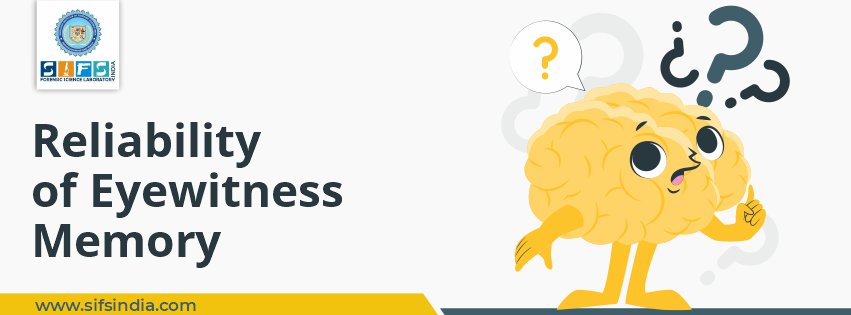A person's episodic memory for a crime or other event that he or she witnessed is called eyewitness memory.
In the legal system, eyewitness testimony is frequently used. It can also apply to a person's facial memory, such as when they are asked to remember the face of their perpetrator.
However, the veracity of eyewitness memories is sometimes questioned since various elements might intervene during the encoding and retrieval of the seen event, causing the construction and preservation of the memory for the event to be harmed.
Here you will learn about eyewitness's memory retention, retrieval, and reliability in legal context.
3 Stages of Memory Involved in The Eyewitness Events
According to psychologists, memory is usually divided into three stages which are:
Acquisition
The acquisition is the initial stage. It refers to the procedures that go into the first encoding of an event as well as the elements that influence it.
Expectations, attention, illumination, distance, arousal, and other elements that govern the types, amount, and correctness of encoded information are all factors that might cause problems during acquisition.
Because the incident occurs unexpectedly and quickly, eyewitnesses to crimes frequently witness the occurrence under unfavorable conditions.
It's possible that attention is drawn to factors that aren't useful for identifying the culprit afterward, such as a weapon.
Retention
Retention is the second stage. The information gathered must be saved for future use.
Psychologists refer this as a negatively decelerating curve, where memory fades sharply in the beginning and more slowly thereafter.
Importantly, during this slower stage, new information might be gained and mixed in with what has already been viewed, causing uncertainty as to what was truly seen by the eyewitness and what was overheard subsequently.
According to Loftus' well-known misinformation tests, witnesses will use incorrect information contained in misleading questions to generate what appear to be fresh memories that are often radically different from what was actually observed.
Retrieval
The retrieval stage is the last stage. Recall and recognition are the two main types of retrieval.
The witness is given some context (e.g., the time frame) and asked to offer a verbal report of what was observed in a recall task.
In a recognition task, the witness will be presented with a set of things (or people) and asked to identify which ones were present during the crime.
Errors of omission (for example, forgetting a detail or failing to recognize the perpetrator) or errors of commission (for example, failing to remember a detail or failing to recognize the culprit) can occur throughout the retrieval process (e.g., recalling things that were not present or picking an innocent person from a lineup).
Unreliability is caused by problems in any of the three stages of memory.
Every piece of evidence contains a hidden truth. From meticulous crime scene analysis to cutting-edge digital forensics, our expert team is dedicated to decode mystery within every clue. Discover how our specialized forensic expertise can support your investigation.
Call on +91-11- 47074263 or WhatsApp +919953546546
Forensic Service Offered by SIFS India Forensic Lab

 May 09, 2021 - BY SIFS India
May 09, 2021 - BY SIFS India